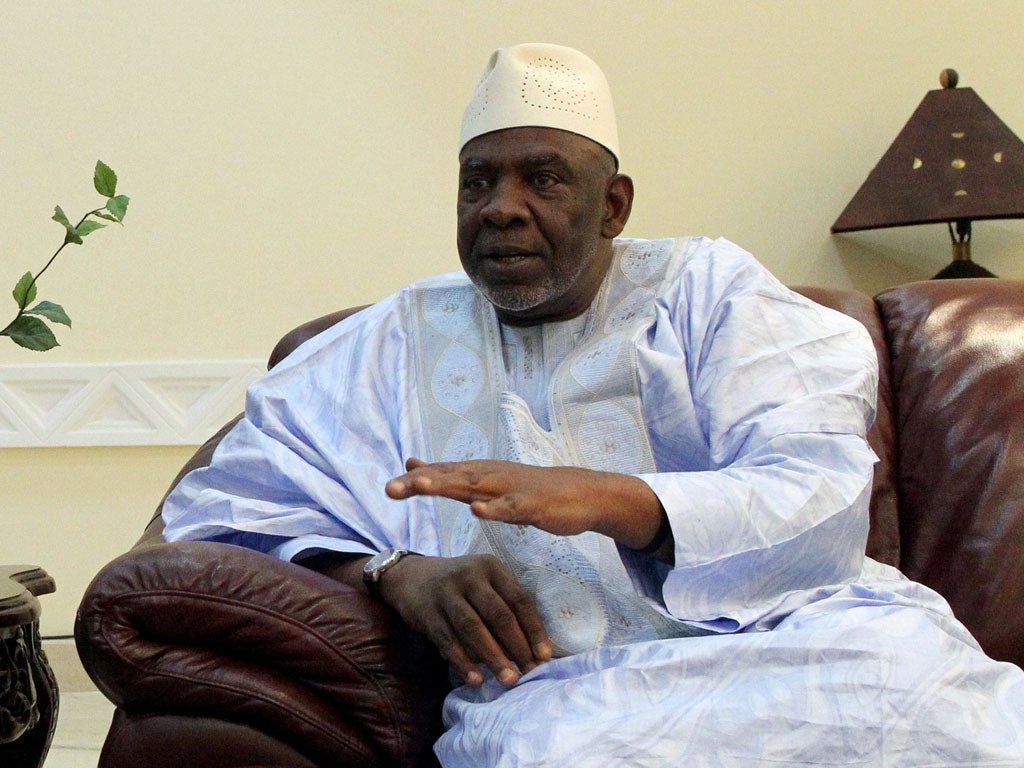Your support helps us to tell the story
From reproductive rights to climate change to Big Tech, The Independent is on the ground when the story is developing. Whether it's investigating the financials of Elon Musk's pro-Trump PAC or producing our latest documentary, 'The A Word', which shines a light on the American women fighting for reproductive rights, we know how important it is to parse out the facts from the messaging.
At such a critical moment in US history, we need reporters on the ground. Your donation allows us to keep sending journalists to speak to both sides of the story.
The Independent is trusted by Americans across the entire political spectrum. And unlike many other quality news outlets, we choose not to lock Americans out of our reporting and analysis with paywalls. We believe quality journalism should be available to everyone, paid for by those who can afford it.
Your support makes all the difference.Mali's prime minister has presented his resignation on state television, hours after soldiers who led a recent coup arrested him at his home in Bamako.
Cheikh Modibo Diarra said in his address, broadcast at 4am local time: "Men and women who are worried about the future of our nation, you are hoping for peace. It's for this reason that I, Cheikh Modibo Diarra, am resigning along with my entire government."
Officials confirmed that soldiers loyal to Captain Amadou Haya Sanogo, the leader of the March 21 coup, arrested Mr Diarra at his home yesterday evening.
Mr Diarra was planning to leave for Paris when the soldiers arrived at around 10pm, said the officials. The prime minister was forced into a car and driven to the Kati military camp, the sprawling military base where the March 21 coup was launched, under the orders of Capt Sanogo.
For several weeks, tension has been mounting between the officers who led Mali's coup and Mr Diarra, the leader they were forced to appoint when they handed back power to a civilian transitional government.
Last weekend, he organised a demonstration calling for a United Nations-backed military intervention to take back Mali's north, which fell to Islamic extremists in the chaos following the coup.
His plane was due to leave for France when it was stopped by activists from the group Yerewoloton, who invaded the airport.
Yerewoloton is a citizen's movement, which is believed to be backed by the junta. In May, soldiers aligned with the junta allowed them to break through the security cordon at the presidential palace. They entered and beat up the newly appointed interim president, 70-year-old Dioncounda Traore, who was then evacuated to Paris for treatment.
The beating of Mr Traore brought immediate international condemnation and it was after the May 21 incident that coup leader Capt Sanogo was forced to retreat from public life. He has kept a low profile in recent months.
Yesterday at the United Nations, France circulated a UN Security Council resolution that would authorise the deployment of an African-led force to oust al Qaida-linked militants who seized Mali's northern half. The United States, however, wants the troops to be trained first for desert warfare, UN diplomats said.
There is agreement in the UN's most powerful body that there must be a two-track solution, political and military, to try to wrest control of the north - an area the size of France - and reunite Mali.
But the Security Council is divided on the speed of military action, with the US recommending a slower, two-stage authorisation process.

Join our commenting forum
Join thought-provoking conversations, follow other Independent readers and see their replies
Comments